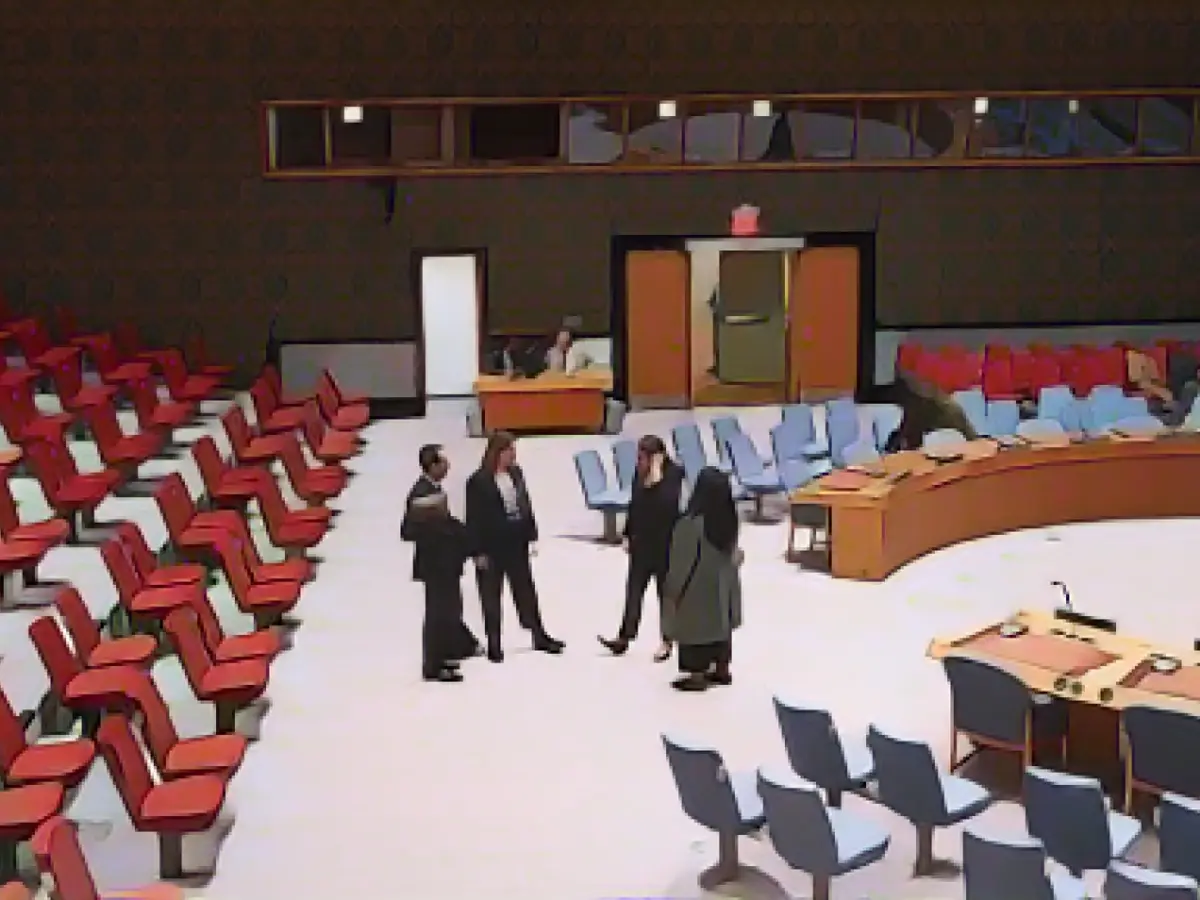UN security council calls for boost in Gaza aid
After a tense round of discussions, the UN security council has endorsed a resolution that seeks to escalate humanitarian aid for about two million individuals facing dire circumstances in the Gaza Strip. This significant shift in policy was achieved through a moderated agreement, adopted in a UN gathering in New York. The United States opted to abstain from using its veto power, a move that prevented the resolution from facing rejection at the final hurdle.
In the early stages of this week, it appeared that the United States had intentions to employ its veto power, safeguarding the interests of its ally, Israel. However, extensive giveaways during the negotiation process managed to sidestep a potential resolution failure at the eleventh hour. A total of 13 countries voted in favor of the text, with Russia joining the United States in choosing to abstain.
The approved resolution, which holds binding force under international law, calls for Israel to "instantly grant unimpeded and secure humanitarian access" to the Gaza Strip. Furthermore, the resolution mandates the establishment of conditions that will guarantee a sustained cessation of hostilities.
UN coordinator of humanitarian aid supplies
Central to the contentious debate surrounding the monitoring of aid supplies, council members agreed to assign a UN coordinator who will collaborate with pertinent actors to facilitate the timely delivery of aid. Additionally, the council demands that humanitarian goods flow freely into the Gaza Strip via all viable border crossings.
However, certain passages fell by the wayside due to pressure from the United States: References to "all infringements of international humanitarian law, including indiscriminate attacks on civilians and civilian objects," cannot be found in the resolution in their original form. Moreover, an immediate halt to violence to allow for aid deliveries, as proposed initially, has been excised.
Various council members expressed dissatisfaction with the watered-down text, leaving it uncertain towards what extent the resolution will be impactful. Despite its binding status, the consequences for Israel in the event of non-compliance will likely be mitigated.
Humanitarian crisis in Gaza
The arduous conflicts Israel has engaged in for the past decade have left the Gaza Strip's more than two million inhabitants in a dire humanitarian situation. A recent UN report highlights that 577,000 people, confined within the sealed-off coastal strip, now fall under the most critical category of malnutrition. Globally, this number of individuals is far surpassed only by around 129,000 people experiencing similar perils. The majority of those dwelling in Gaza struggle with hunger or displacement. Israel imposed a siege and initiated attacks on the Gaza Strip following a malevolent terrorist attack perpetrated by Hamas on October 7.
United States' resistance
The United States government encountered internal hurdles throughout the negotiation of the resolution, which was originally introduced by the United Arab Emirates. As per reports, prominent diplomats had initially decided to abstain at the onset of the week. However, US President Joe Biden initially decided to veto the bill despite a meeting with UN Ambassador Linda Thomas-Greenfield on Tuesday. Later, US Secretary of State Antony Blinken secured additional concessions in direct discussions with his counterparts from the United Arab Emirates and Egypt, as per diplomatic sources.
In the preceding weeks, two analogous draft resolutions faced failure due to United States opposition. Washington consistently backed Israel, arguing that attempts at a resolution could disrupt ongoing diplomatic efforts in the region. So far, the UN security council has only adopted a resolution with a humanitarian focus that is binding under international law. Conversely, the UN general assembly has rubber-stamped two resolutions urging an end to the violence – however, these resolutions carry symbolic weight only.
UN Secretary-General António Guterres has strongly advocated for the security council to support a humanitarian ceasefire with unprecedented vehemence. In a recent letter to the council, he highlighted Article 99 of the UN Charter, which grants him the power to bring any matter that may jeopardize international peace and security to the attention of the council - a power that has reportedly remained untapped for decades.
Incorporated insights from enrichment data: The UN security council resolution aimed at increasing humanitarian aid for the Gaza Strip has been influenced by various countries' interests, including the United States, which has often been accused of supporting Israel's actions despite potential violations of international humanitarian law. The UN has been actively involved in providing aid to Gaza, and the UN Relief and Works Agency for Palestine Refugees in the Near East (UNRWA) plays a crucial role in this humanitarian response.
The resolution calls for senior UN officials to be granted unrestricted access to Gaza to assess the humanitarian situation, and for international organizations to deliver aid to the region. The UN has warned that Israel's policies, which include restricted access to the Strip and the interception of aid shipments, are exacerbating the humanitarian crisis.
Furthermore, the resolution urges Israel to investigate allegations of war crimes and human rights abuses committed during the conflict, and to compensate Palestinian families who have lost loved ones or property as a result of Israeli actions.
The resolution also calls for the international community to support Palestinians' right to self-determination, and to work towards a negotiated two-state solution to the Israel-Palestine conflict.
In addition, the resolution emphasizes the importance of protecting Palestinian civilians, and condemns the indiscriminate targeting of civilian infrastructure such as schools and hospitals in Gaza.
Finally, it reinforces the obligation of all parties to respect international humanitarian laws, and urges the international community to exert diplomatic and economic pressure on Israel to comply with these requirements.








